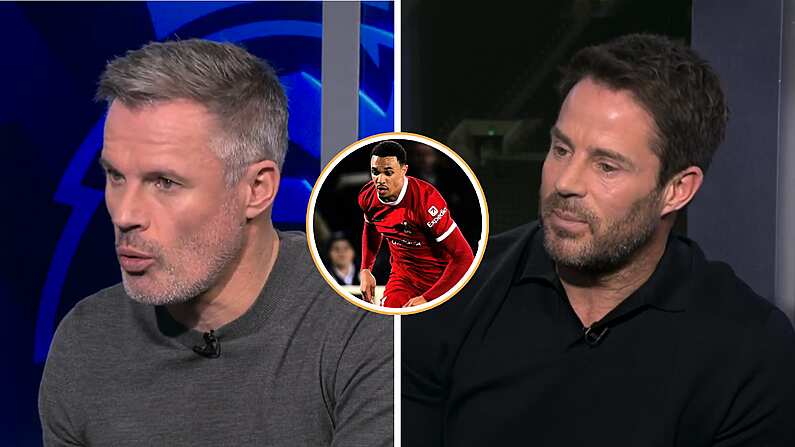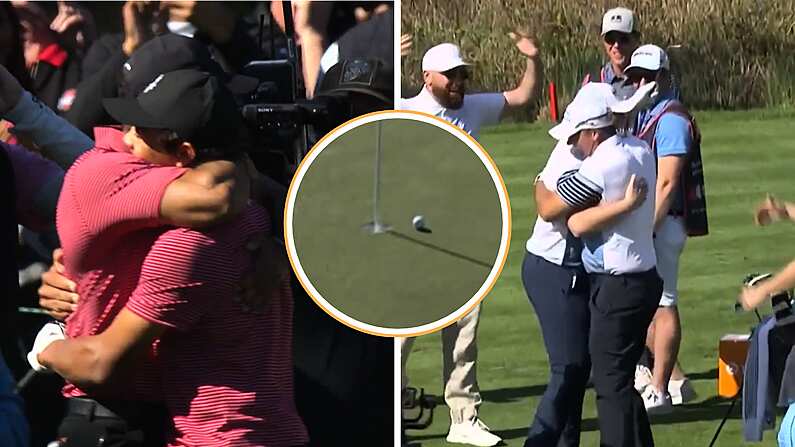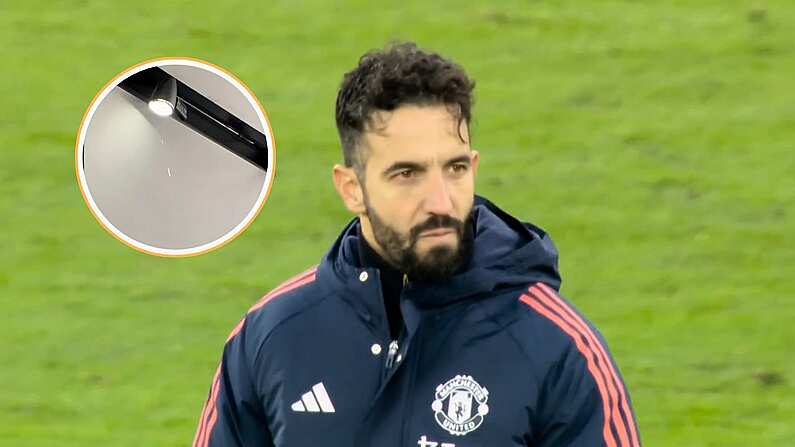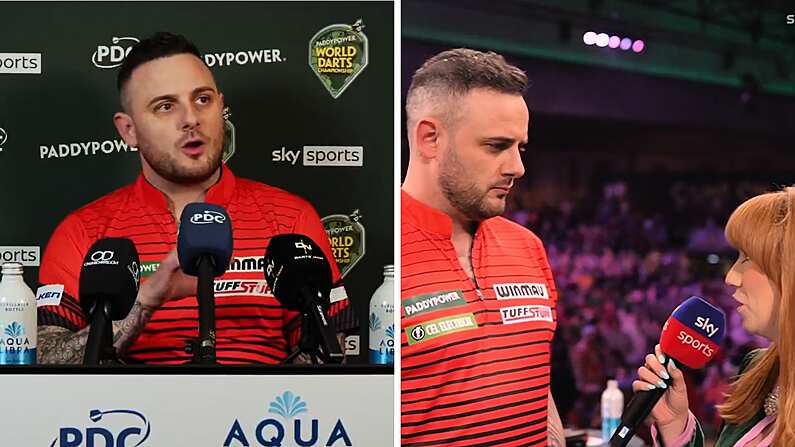For a little rock situated on the westernmost point of Europe, Ireland has certainly punched above its weight when it comes to sport. Far from being ‘the little soccer nation that could’, the Irish team has experienced its share of successes and failures but one attribute which has united Irish football over the years has been their bare-faced inability to lay down for their opponents.
Here are five times the Irish team refused to compromise.
John Aldridge Loses It Against Mexico
It was 110 degrees inside the Citrus Bowl in Orlando but, for a few minutes at least, temperatures were considerably hotter on the touchline. Trailing 2-0 to Mexico in the final minutes of their World Cup group E game, Jack Charlton’s Ireland were in need of a goal – and quick.
The last Irish roll of the dice was to switch Tommy Coyne, Ireland’s sole striker, for John Aldridge. At 35 years old, Aldridge’s best days were behind him but the Tranmere Rovers marksman had a knack for bagging crucial goals for club and country. If only he could get on the pitch.
With Coyne now departed from the match, FIFA delegate Mustafa Fahmy was unhappy with some elements of the substitution and delayed Aldridge’s entrance to the match while he looked for clarification on exactly who was coming off and who was coming on. To put it mildly, this didn’t go down very well with Charlton and Aldo.
Tempers flared, fingers were pointed and some colourful language was uttered but you got the sense that, if he ever gets on the field of play, Aldridge was going to make something happen.
And that he did.
Now hugely fired-up, Aldridge nodded in a Jason McAteer cross with barely five minutes remaining and this proved to be the goal which secured Ireland’s passage to the knockout stage of the World Cup where they would eventually be undone by the Netherlands.
Aldridge and Charlton both later received fines for their “ill-mannered behaviour” on the sidelines. Money well spent, you might say.
Jack Charlton’s ‘Put ‘Em Under Pressure’ Tactics
When Jack Charlton took over as manager for the Irish football team in 1986, he inherited from Eoin Hand a squad of players as talented as any group of Irish players before them. Liam Brady, Paul McGrath, Dave O’Leary and Ronnie Whelan were fixtures of the side at that point but when Charlton assumed power he began to look beyond Ireland’s borders for footballing talent.
John Aldridge and Ray Houghton, a Scouse and a Scot on the books at Oxford United, received their first call-ups for Charlton’s debut match against Wales and before long it became apparent that Ireland had developed a very, very talented squad and probably could have acquitted themselves well if asked to play an open, free-flowing style of football.
Charlton, though, had other ideas. With practically all of his charges based in England, Big Jack adopted a very British 4-4-2 formation with his players instructed to harry and hassle their opposite numbers into mistakes by applying constant pressure for ninety minutes. To his detractors, of which there were many, this was Charlton ignoring the Irish players’ potential by plugging them into a system which was beneath their obvious talents.
Then the results started getting good. Victory in the Icelandic Triangular Tournament gave Charlton and Ireland their first ever trophy. Qualification for Euro ’88 followed (cheers again for that Gary Mackay) and then, well, we all know what happened at Italia ’90.
Jack Charlton has been practically canonised by the Irish public at this point and the best part of it all is that he did it his own way.
Don't Mention The War
Saipan. Seldom has a two-syllable word rendered an entire nation as disconsolate as what went on for those strange few days in May 2002.
The events and very public quarrel between Irish captain Roy Keane and manager Mick McCarthy are ingrained in our collective consciousness and the entire incident has become a genuine pop culture moment for this generation. It has already spawned several books, a (really, really good) play and THAT interview (“this is hurting you Roy, isn’t it?”) and you get the distinct impression that the hangover from the incident is still being felt by both Keane and the FAI.
Keane walked away from the biggest football tournament in the world. Mick McCarthy lost his best player. And in this days long staring contest between the two, neither blinked.
The fallout from sending one of the world’s best midfielders was heavy. Keane’s absence would be felt by any team, particularly an Ireland side build around him and so reliant on his leadership. In Keane’s stead, Charlton Athletic man Mark Kinsella slotted into the central midfield alongside Matt Holland and attempted to fill the black hole left behind by their former captain and the new duo equipped themselves admirably in Ireland’s World Cup run.
Keane and McCarthy eventually made amends several years later. Roy now works for the FAI. Things can change pretty quickly in football.
Richard Dunne Thwarts a Russian Siege
https://www.youtube.com/watch?v=2SbegiQbmp8
Remember those awful Chuck Norris jokes that were so in vogue a few years back? For a while in September 2011 it was Richard Dunne’s name, not Chuck Norris, used in them. And it was glorious.
Giovanni Trappatoni’s Ireland travelled to Moscow on the back of six successive clean sheets but a seventh was beginning to look increasingly unlikely after Russia began the match in imperious form. There was just one obstacle in Russia’s path and his name was Richard Dunne.
By 2011 Dunne had become an irreplaceable member of the Irish team. The Aston Villa man had graduated from a bit-part role in the Irish team in his first few years in the green jersey to become a totemic emblem of the Irish defiance, rarely ceding an inch to the opposition.
Never was this more apparent than that night in Moscow. For what now seems like the full 90 minutes, the Russians lay siege to the Irish goal. Each successive wave of attack was repelled by Dunne, using practically every part of his anatomy to do so. Igor Semshov’s gilt-edged chance was blocked on the line by Dunne’s heel in a sleight of hand trick that Derren Brown would be proud of. A touchline tackle on Yury Zhirkov saw Dunne use his face to skid to a halt on the pitch-side running track. Legendary stuff.
Ireland finished that match with a credible 0-0 draw which helped secure their passage to Euro 2012 and we have one man to thank for that.
Irish Defiance Against The Dutch
If there’s a common theme to be noted each time Ireland qualify for a major tournament, it’s that it’s usually secured on the back of campaign with at least one against-all-odds match. Ahead of Ireland’s qualification for the 2002 World Cup, that match was against the Dutch at Lansdowne Road.
The visitors were heavily favoured when they took to the pitch. Their team was populated by household names, the type of superstars which could manifest a pretty serious inferiority complex in our team if not handled effectively. If Kluivert didn’t score, Van Nistelrooy would. Philp Cocu can’t unlock the defence? Maybe Boudewijn Zenden has the key.
Any notion that the Irish team would roll over for their world famous opponents was thrown out the window when Roy Keane clattered into Marc Overmars 35 seconds into the match, a physical and verbal warning that this wasn’t going to be an easy night for them. Still, when Gary Kelly was dismissed for a second booking midway through the second half things were beginning to look bleak.
Then it happened.
Jason McAteer hadn’t started a match for his club, Blackburn Rovers, for five months when he stroked the ball home from Steve Finnan’s cross sending Lansdowne Road into raptures. The forgotten man of Irish football has suddenly become a hero.
The Dutch finished the match with four strikers on the pitch and, despite some very close calls, the victory earned Ireland their eventual qualification to the World Cup.
What’s even more remarkable? The result elicited a handshake of sorts between Keane and McCarthy before their relationship went nuclear several months later.
And while we're on the subject of zero compromise, you can't really talk about Irish football in that context without mentioning the man himself...










